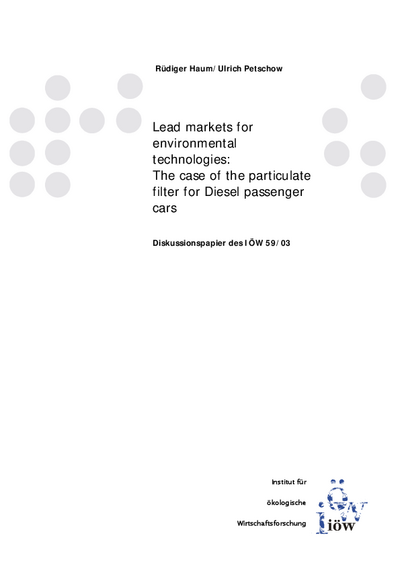Lead markets for environmental technologies The case of the particulate filter for Diesel passenger cars
Technologies which reduce the level of pollutants in the exhaust fumes of diesel vehicles are a key factor in enabling future emissions ceilings to be satisfied. In principle, a reduction of pollution by automobiles is achieved by way of politically prescribed ceilings and adherence thereto based on advanced vehicle engineering. The diffusion of such technology, however, is not simply a matter of the interplay of political regulation and response by carmakers. It is a complex process contingent on and shaped by a variety of factors. This case study uses the example of introduction of the particulate filter for diesel vehicles on the German market to examine how emissions ceilings come about as well as the technological development strategies employed by carmakers to meet those ceilings. Our study will show that Peugeot, an automobile manufacturer, through its early introduction of technology designed to meet prospective emissions ceilings (i.e. standards already resolved but not yet put into effect), created favourable preliminary conditions on the basis of which to develop a lead market. Political steering instruments, however, proved to have a predominantly impeding effect in terms of market constitution, with players from commercial enterprise taking on a more dominant role in the process. This case study illustrates that engineering competency in the field of pollutant reduction can be a competitive advantage for vehicle manufacturers and that such competency is an imperative prerequisite for companies wishing to access new markets, given the long-term international tendency to lower emissions ceilings.



